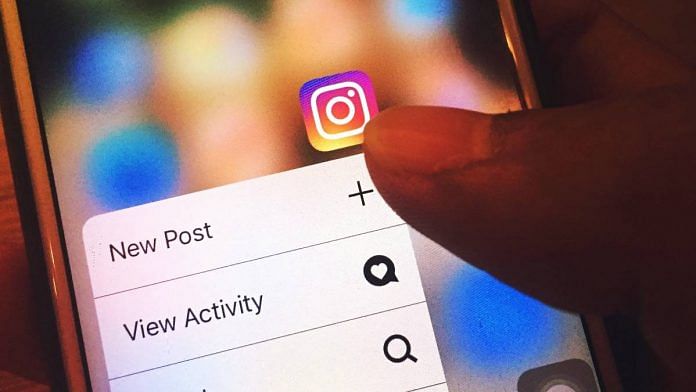New Delhi: The Delhi High Court Wednesday refused to direct the Army to withdraw its 6 June policy that banned its personnel from accessing social media platforms such as Facebook and Instagram.
The court observed that warfare and international rivalries today are not confined to accession or territory, but also affect the economic and political stability of a country.
A bench led by Justice Rajiv Sahai Endlaw dismissed a petition filed by serving Army officer, Lieutenant Colonel P.K. Choudhary, who had sought the withdrawal of the policy on the grounds that it was “arbitrary executive action”.
The policy banned 89 social media applications, including TikTok, WeChat, Facebook and Instagram. Choudhary’s lawyer, senior advocate Prashanto Sen, had called it unconstitutional because it came by way of an executive order.
But the court dismissed Sen’s contention with a view that the policy was not issued “impulsively”, but was preceded by prolonged study of different aspects.
The government had argued the ban was imposed after deliberations took place at the highest level, and similar prohibitions on Army personnel existed in other countries.
Also read: Army to change 2005 policy to cope with media boom, Facebook, Twitter, WhatsApp explosion
‘Courts would be loath to interfere’
The Delhi High Court bench perused the policy as well as other supporting documents, which had been supplied by the government in a sealed cover on the court’s orders.
It concluded the policy was an outcome of “constantly evolving intelligence of security threats and assessment of security safeguards” needed to plug the gaps and meet the ever-threatening electronic and cyber infrastructure.
Warfare and inter-country rivalries and animosities were no longer confined to accession of territory and destruction of installations and infrastructure of enemy countries, but influenced the economic and political stability of a country by inciting civil unrest, the bench remarked.
In such a scenario, the court said, if the government concluded that permitting its defence personnel to use social media sites is enabling the enemy countries to gain an edge, then the courts would be loath to interfere.
‘Honey traps’
Underlining the threat to security establishment posed by the virtual world, the court agreed with the Centre’s submission that it was necessary to regulate Army personnel’s use of social media to prevent any incidents of ‘honey trap’, or entrapment through the promise of sexual favours.
The central government counsel, Additional Solicitor General Chetan Sharma, had said the policy was based on the perception of threat posed by use of certain social media platforms, pointing out that restricted usage of sites such as Skype, WhatsApp, Telegram, Signal, YouTube and LinkedIn was permitted.
The policy, he said, was an extension of Army Rule 21, which restrains personnel from publishing or communicating directly or indirectly with the press on matters related to politics or service information, unless approved by an appropriate authority.
Sharma argued the expression “press” included all non-military audio, visual, print and electronic media, internet, non-military e-mail, and non-military wide/local area networks.
The Delhi High Court acknowledged that the “paradigm shift in the intelligence activities of hostile nations; increased popularity of various social media platforms; (and) vulnerability of unsuspecting military personnel” called for such a policy.
The bench said it was virtually impossible to keep trace of lakhs of online profiles or identify fictitious enemy profiles. The ban, it stated, was based on an assessment of the different modes adopted for ‘honey traps’, not necessarily in the conventional sense and vulnerability of different social media platforms.
Also read: Indian Army asking officers to stay away from Facebook a knee-jerk, ineffective diktat



